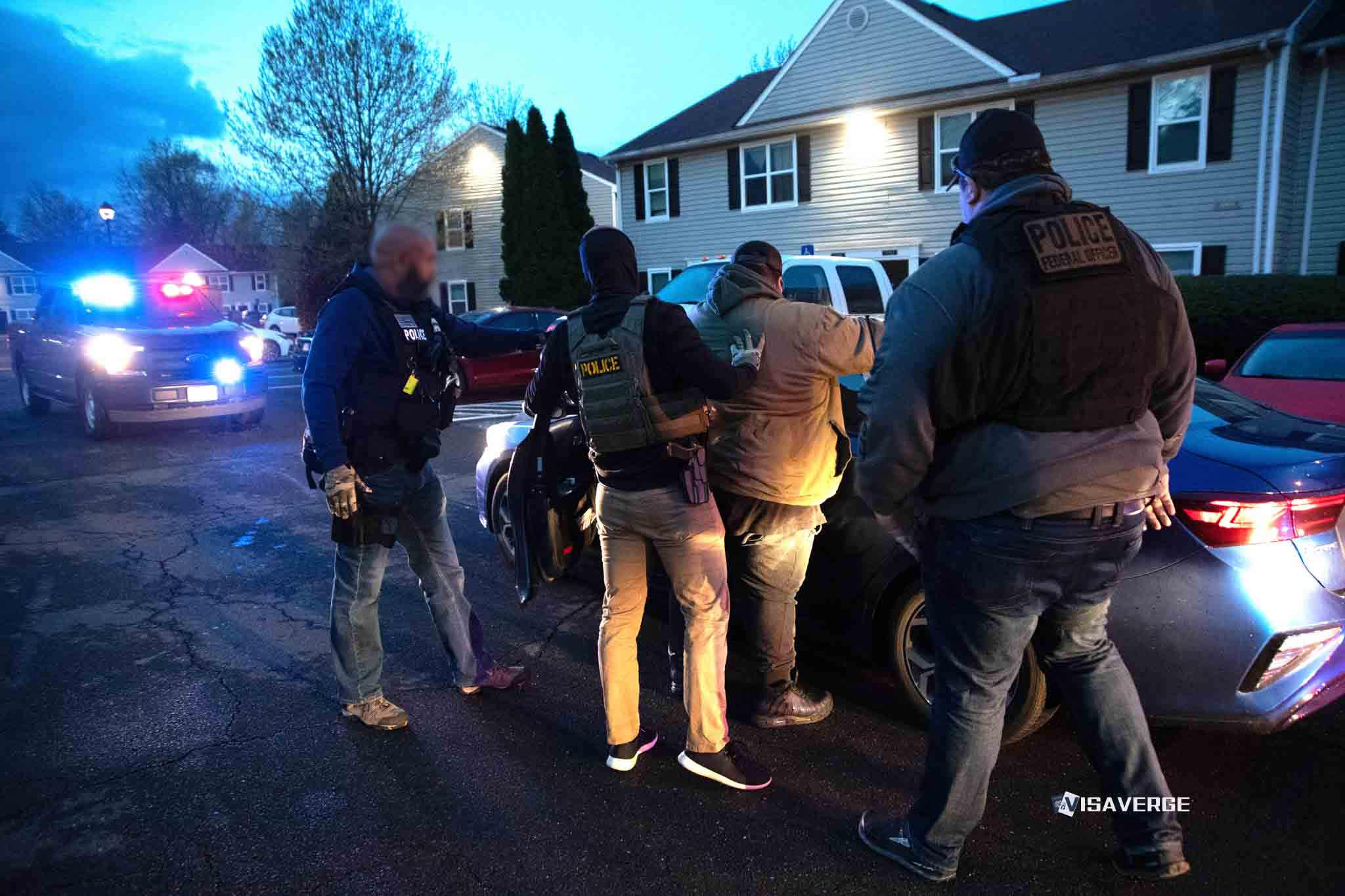(PALOS HEIGHTS, IL) Federal agents tapped local police access to Flock Safety’s automated license plate reader network to run immigration-related searches, including a January 2025 incident in suburban Chicago where a Drug Enforcement Administration agent used a Palos Heights officer’s password without the officer’s knowledge to check a plate tied to an “immigration violation.” Using license plate readers for immigration enforcement is illegal in Illinois. The police department changed the password after discovering the misuse, according to newly released audit materials and agency statements.
Password misuse in Illinois and the broader pattern

The Illinois episode sits inside a larger, nationwide pattern: out-of-state officers and federal teams reaching into local Flock Safety systems to hunt for data labeled “ICE” or “immigration.”
Multiple audits released in 2025 show thousands of such lookups across the United States via Flock’s sharing features, which let agencies search cameras outside their borders when local administrators allow it. While Immigration and Customs Enforcement does not have a formal Flock contract, logs and agency emails reviewed by reporters show federal personnel often obtain results by:
- Asking local partners to run the queries, or
- Using shared networks or others’ credentials to access data.
Specific examples:
– In Denver, audit logs show more than 1,400 searches tagged “ICE” or “immigration” between June 2024 and April 2025, with about 690 after January 2025. City officials say some reasons relate to criminal cases handled by Homeland Security Investigations (HSI) rather than civil removals. Due to immigration concerns, Denver disabled national sharing in April 2025.
– Virginia logs indicate roughly 50 immigration-related searches from June 2024 through April 2025 across Fairfax, Chesterfield, Isle of Wight, Loudoun, and Stafford counties. Some local policies barred immigration use, yet sharing still occurred.
– In Richmond, the police department blocked federal access after an ATF analyst improperly used Richmond’s Flock system to assist an immigration case following a detention center escape.
Civil liberties groups argue the records confirm repeated ICE-related access despite prior city messaging that access would be limited.
National audit logs: scope, response, and tools
Florida offers the clearest picture of active immigration-focused use.
- Florida Highway Patrol (FHP) ran more than 250 immigration-related searches from March 13 to May 5, 2025, with activity spiking around Operation Tidal Wave in April.
- The Governor’s office reported more than 1,100 arrests tied to that surge; nearly 40% of those arrested had no criminal record.
- Over 100 agencies in Florida use Flock, but fewer than 10 ran immigration searches during that period, with FHP the most active. Some law enforcement leaders said staffing was stretched thin by the extra workload.
Across regions, audits reveal a “side-door” path for federal access. An analysis identified roughly 4,000 immigration-related searches nationwide in the logs reviewed by reporters and partner groups.
Other notable findings:
– In Denver, national search had been allowed on 111 cameras until April 2025. Many outside agencies entered reasons simply as “ICE” or “immigration.”
– In metro Atlanta, at least 47 searches citing ICE or HSI occurred between January 22 and March 7, 2025, aided by Flock’s “vehicle fingerprinting” tool, which can match cars based on features beyond a plate number.
Flock Safety responds that there is no “back door.” The company emphasizes that:
- Sharing choices are controlled by local administrators, and
- Many collaborations are for ordinary criminal cases such as stolen cars or violent crime.
In response to the 2025 disclosures, Flock announced several product changes and guardrails:
– In June 2025, Flock added a proactive search-term filter that flags and blocks impermissible reasons, including immigration, abortion, and gender-affirming care.
– An Illinois policy attestation workflow has been in place since January 2024.
– A new option to require case numbers for searches is set to roll out in August 2025, allowing agencies to tighten oversight.
Illinois features the strongest in-product limits:
– State law bars out-of-state searches of Illinois plate data for immigration offenses, abortion, and gender-affirming care.
– That legal framework made the Palos Heights incident especially sensitive and highlights a basic risk: shared passwords or favors to federal contacts can sidestep local policy.
Recommended agency safeguards (from the audits and experts):
– Enforce multi-factor authentication (MFA).
– Rotate credentials regularly.
– Audit search terms frequently and thoroughly.
Impacts on immigrant communities and police departments
On paper, many jurisdictions say they don’t share with ICE or use ALPRs for civil status checks. In practice, logs show immigration-related searches continue until access is turned off or narrowed.
Examples and concerns:
– Before Denver shut down national sharing, out-of-state departments — including from Dallas and Jacksonville — accessed Denver cameras and listed “ICE” as the reason.
– In Virginia, agencies shared access across more than 1,000 cameras even as some local rules discouraged immigration use.
– Advocates warn ALPRs can identify a car tied to a person who missed a court check-in or who has no criminal record.
Police leaders counter that ALPRs also help:
– Find stolen vehicles
– Locate violent offenders
– Recover missing persons
They also stress a search reason labeled “ICE” can refer to a criminal probe by HSI. Logs, however, often lack sufficient detail to confirm final purpose or outcomes.
According to analysis by VisaVerge.com, the documentation gap is driving demands for:
– Clearer rules,
– Better audit fields, and
– Shorter data sharing lists.
Practical steps for residents and community groups:
– File records requests for ALPR audit logs to see search reasons, dates, and which agencies accessed local cameras.
– Ask whether national sharing is on, off, or scoped to certain partners; seek a clear ban on immigration uses if that reflects local policy.
– Push for public reporting on search reasons and for logs to be kept in a retrievable format.
Actions agencies can take quickly:
1. Turn on Flock’s Illinois-style filters where offered and enable the upcoming case-number requirement.
2. Review logs regularly, disable or narrow national sharing, and train staff on state limits.
3. Use strong credential controls and prompt password changes after any suspected misuse — as Palos Heights did.
Federal-state differences and the path forward
The federal-state cooperation picture differs sharply by state:
- Florida: Embraces close work with ICE under state policy; many agencies participate in formal agreements. See the federal 287(g) program for background: https://www.ice.gov/287g.
- Illinois: Sets bright-line limits and now has in-product filters to back those rules.
- Virginia: Falls in-between, with agencies adding compliance tools and restricting some access after this year’s findings.
Flock Safety says more product controls are coming “in the coming year.” Advocates argue guardrails should be the default, not optional, and that cross-border data sharing should match each state’s law, not the broadest one.
With federal immigration operations rising in 2025, pressure to reach into local ALPR networks is likely to continue. That focuses attention on:
- Who controls the switch — the city IT admin, the police chief, or the vendor.
- Whether every search has a traceable case number that a city council, court, or resident can later review.
The Illinois password incident shows how a single login can expose an entire region’s drivers to checks that local law forbids. Denver’s pivot shows a big city can shut the door fast when public demand and council pressure mount. Florida’s spike demonstrates how quickly ALPRs can scale during a statewide sweep.
The next test is whether tighter settings and case-number fields will move these systems from trust to proof: turning a blunt “ICE” label into a documented, lawful use — or a blocked search.
This Article in a Nutshell
A Palos Heights password misuse in January 2025 exposed illegal Illinois immigration searches via Flock Safety. Nationwide audits found thousands of ICE-tagged lookups. Denver disabled national sharing; Florida saw spikes tied to Operation Tidal Wave. Flock added proactive filters in June 2025 and plans case-number requirements by August 2025 to tighten oversight.













